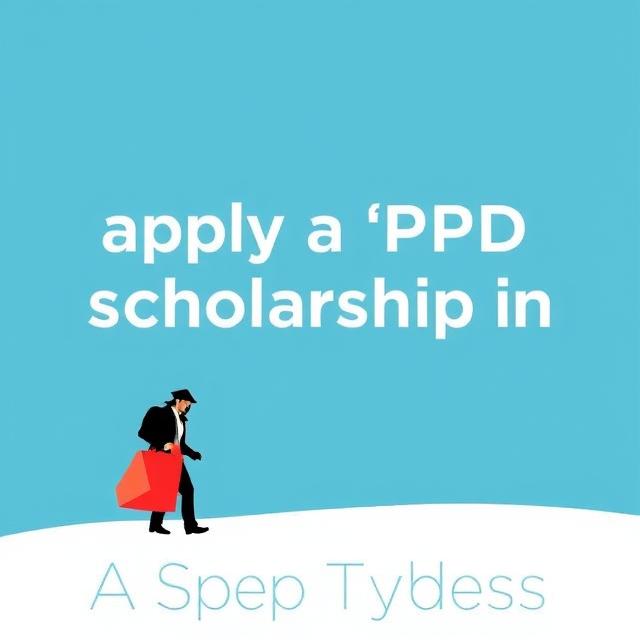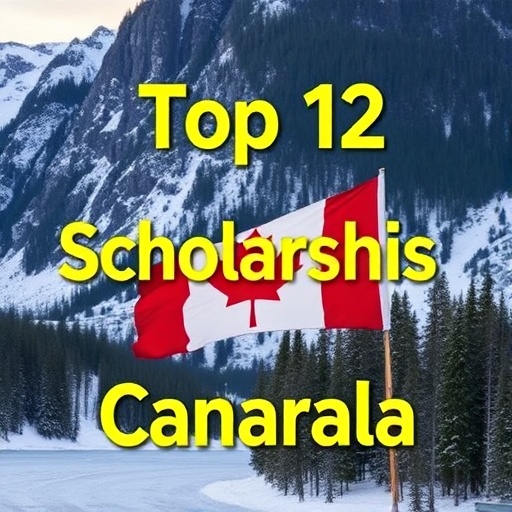Cracking the Code: A Step-by-Step Guide to Applying for PhD Scholarships in Canada
Embarking on a PhD is a significant investment, not just in time and effort, but also financially. Fortunately, Canada boasts a robust system of scholarships and funding opportunities to support doctoral students. Navigating this landscape can be daunting, but with a strategic approach and a clear understanding of the application process, you can significantly increase your chances of securing funding. This comprehensive guide will walk you through the process, step-by-step, providing valuable resources and practical advice along the way.
Step 1: Define Your Research and Identify Your University
Before even thinking about scholarship applications, you need a clear research focus and a targeted university. This foundational step will inform your entire scholarship search and application strategy.
-
Refine your research proposal: What specific question are you aiming to answer? What methodologies will you employ? What is the potential impact of your research? A well-defined research proposal demonstrates your commitment and intellectual capacity. Spend significant time developing and refining this document. Seek feedback from professors and mentors.
-
Identify potential supervisors: Look for faculty members at Canadian universities whose research aligns closely with yours. Review their publications, research interests, and current projects. Contact them directly, expressing your interest and asking if they are accepting new PhD students. This initial contact can be crucial for gaining insight and potentially securing their support for your application.
-
Choose a university: Consider factors beyond research alignment, such as the university’s reputation, the resources available (e.g., libraries, labs, funding opportunities), the cost of living in the city, and the overall program structure. Visit university websites and attend virtual information sessions to gather information.
Step 2: Understand the Canadian Scholarship Landscape
Canada offers a variety of PhD scholarships from different sources: government agencies, universities, and private foundations. Understanding the different types of scholarships is crucial for identifying the most relevant opportunities for you.
-
Government Scholarships:
-
Vanier Canada Graduate Scholarships (Vanier CGS): These prestigious scholarships are awarded to exceptional doctoral students demonstrating leadership skills and a high standard of scholarly achievement. They are open to Canadian citizens, permanent residents, and international students. Check eligibility criteria and application deadlines on the official website: Vanier Canada Graduate Scholarships.
-
Canadian Institutes of Health Research (CIHR) Doctoral Research Awards: CIHR offers funding for doctoral students pursuing health-related research. The application process is rigorous and requires a strong research proposal and academic record. Learn more about CIHR funding opportunities: CIHR Funding.
-
Natural Sciences and Engineering Research Council of Canada (NSERC) Postgraduate Scholarships: NSERC provides funding for doctoral students in natural sciences and engineering. Similar to CIHR, the application process is competitive and requires a well-developed research proposal. Explore NSERC’s funding programs: NSERC Funding.
-
Social Sciences and Humanities Research Council (SSHRC) Doctoral Fellowships: SSHRC supports doctoral students in the social sciences and humanities. Their doctoral fellowships are highly competitive and require a compelling research proposal and a strong academic record. Discover SSHRC’s funding opportunities: SSHRC Funding.
-
-
University Scholarships and Awards:
- Most Canadian universities offer their own internal scholarships and awards for doctoral students. These scholarships are often based on academic merit and research potential. Visit the graduate studies website of your chosen university to explore their funding opportunities. For example:
- University of Toronto School of Graduate Studies
- University of British Columbia Graduate and Postdoctoral Studies
- McGill University Graduate and Postdoctoral Studies
- Most Canadian universities offer their own internal scholarships and awards for doctoral students. These scholarships are often based on academic merit and research potential. Visit the graduate studies website of your chosen university to explore their funding opportunities. For example:
-
Private Foundations and Organizations:
- Numerous private foundations and organizations offer scholarships for doctoral students in specific fields of study. Research potential funding sources that align with your research area. Examples include:
- Pierre Elliott Trudeau Foundation Scholarships: Support doctoral students in the humanities and social sciences with a focus on public policy and social issues. Find out more: Pierre Elliott Trudeau Foundation
- The Mackenzie King Memorial Scholarships: Awarded to graduates of Canadian universities pursuing postgraduate studies. Learn more: Mackenzie King Scholarships
- Numerous private foundations and organizations offer scholarships for doctoral students in specific fields of study. Research potential funding sources that align with your research area. Examples include:
Step 3: Meet Eligibility Requirements and Application Deadlines
Carefully review the eligibility requirements for each scholarship you are considering. These requirements may include:
- Citizenship or residency status: Some scholarships are restricted to Canadian citizens or permanent residents.
- Academic standing: Most scholarships require a high GPA and a strong academic record.
- Field of study: Some scholarships are specific to certain disciplines.
- Program level: Ensure that the scholarship is applicable to PhD students.
Missed deadlines are a common reason for application rejection. Create a detailed timeline for each scholarship, including deadlines for submission of required documents. Use a calendar or task management tool to stay organized.
Step 4: Gather Required Documents and Information
The required documents for PhD scholarship applications typically include:
- Application form: Complete the online or paper application form accurately and thoroughly.
- Academic transcripts: Obtain official transcripts from all post-secondary institutions you have attended.
- Curriculum Vitae (CV): Create a comprehensive CV that highlights your academic achievements, research experience, publications, presentations, and awards.
- Research proposal: This is the most critical component of your application. It should clearly articulate your research question, methodology, and expected outcomes.
- Letters of recommendation: Request letters from professors or mentors who can attest to your academic abilities and research potential. Give your referees ample time to write compelling letters.
- Statement of purpose/motivation letter: Explain your motivations for pursuing a PhD and how your research aligns with your career goals.
- Writing samples: Some scholarships may require you to submit writing samples, such as publications or thesis chapters.
- English proficiency test scores (for international students): If English is not your first language, you may need to submit TOEFL or IELTS scores.
Step 5: Craft a Compelling Application Package
Your application package is your opportunity to showcase your qualifications and convince the selection committee that you are a worthy candidate.
- Focus on your research proposal: The research proposal should be clear, concise, and well-organized. It should demonstrate a strong understanding of the existing literature and a clear plan for conducting your research.
- Highlight your achievements: Emphasize your academic achievements, research experience, and any awards or recognition you have received.
- Tailor your application to each scholarship: Avoid submitting a generic application. Customize your statement of purpose and research proposal to align with the specific requirements and priorities of each scholarship.
- Proofread carefully: Ensure that your application is free of grammatical errors and typos. Ask a friend or mentor to proofread your application before you submit it.
Step 6: Seek Feedback and Revise Your Application
Before submitting your application, seek feedback from professors, mentors, and writing center staff. They can provide valuable insights and suggestions for improvement. Be open to criticism and willing to revise your application based on their feedback.
Step 7: Submit Your Application On Time
Submit your application well before the deadline to avoid any technical issues or last-minute stress. Double-check all documents to ensure that they are complete and accurate. Keep a copy of your application for your records.
Step 8: Follow Up and Be Patient
After submitting your application, follow up with the scholarship provider to confirm that your application has been received. The review process can take several months, so be patient. If you are not selected for a scholarship, don’t be discouraged. Learn from the experience and reapply in the future. You can also seek feedback from the scholarship provider to understand why your application was not successful.
Tips for Increasing Your Chances of Success:
- Start early: Begin your scholarship search and application process well in advance of the deadlines.
- Network with professors and researchers: Attend conferences, workshops, and seminars to network with potential supervisors and learn about funding opportunities.
- Attend information sessions: Many universities and scholarship providers offer information sessions on the application process.
- Seek mentorship: Connect with current PhD students or alumni who have successfully secured funding.
- Be persistent: Don’t give up if you don’t receive a scholarship on your first attempt. Keep applying and refining your application package.
Securing funding for your PhD in Canada requires dedication, preparation, and a strategic approach. By following these steps and utilizing the resources available, you can significantly increase your chances of achieving your academic goals and contributing to groundbreaking research. Good luck!




